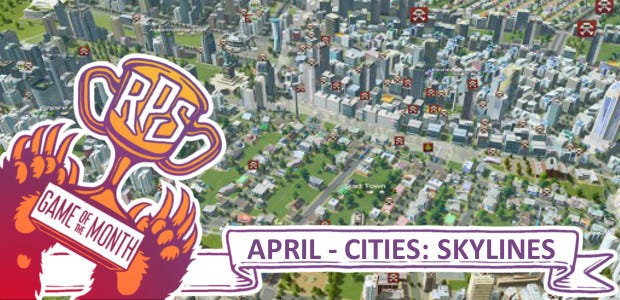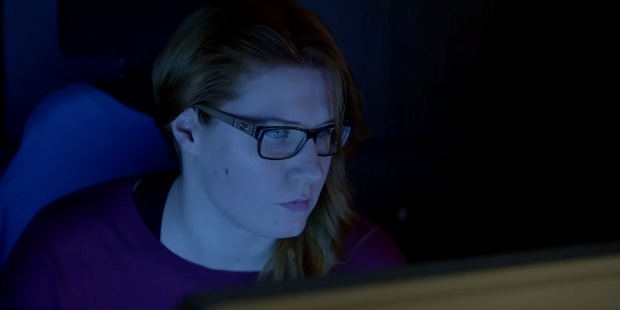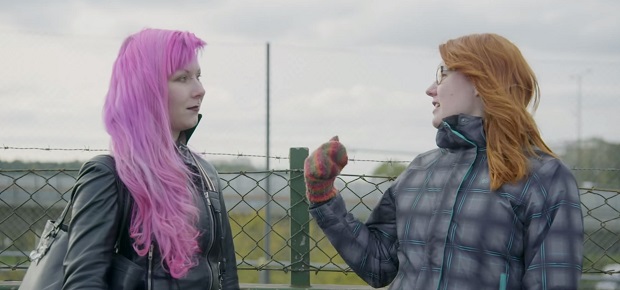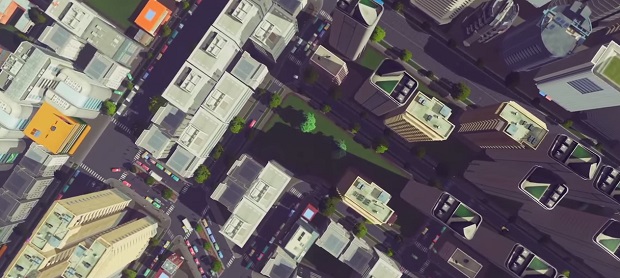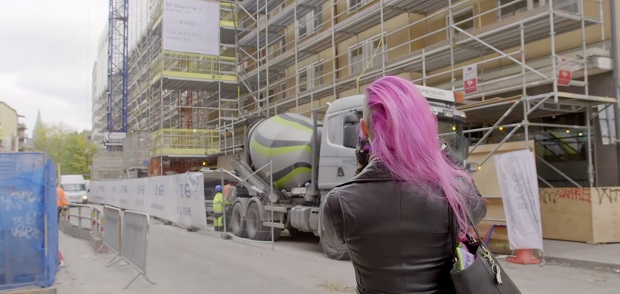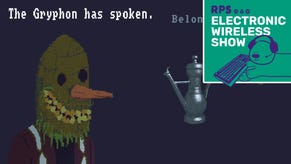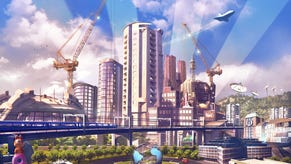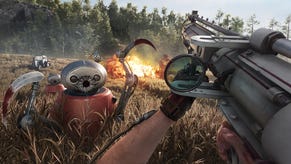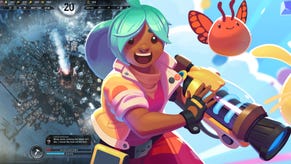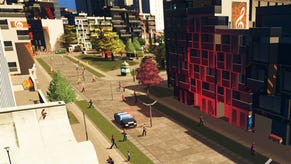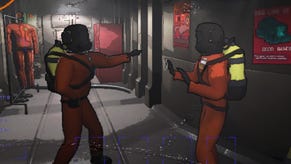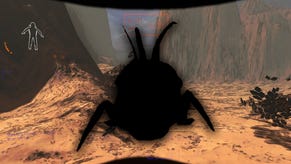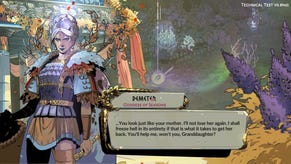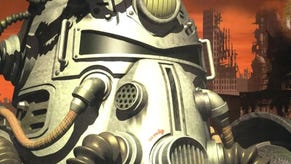Mods, Maxis And Forward Motion: Cities Skylines Interview
The foundation and the future
In an attempt to learn everything there is to know about our Game of the Month, Cities: Skylines [official site], I spoke to Colossal Order's CEO Mariina Hallikainen until we both ran out of words. We talked about the game's extraordinary success and what it means for the future of the 13-person company, the importance of mods, the fate of Cities in Motion, and the influence of dear departed Maxis. Along the way, there are discussions about simulations as educational tools, Colossal Order's next project, and the importance of a good working environment and the avoidance of crunch.
Most important of all? The origin story of Chirper.
RPS: Hello! As you already know, Cites: Skylines is our first ever game of the month over on RPS.
Hallikainen: Well, Paradox sent us cake and champagne, but that is even better. We are so happy!
RPS: We aren't going to send you cake though. The prize is that you have to speak to me for an hour.
Hallikainen: That's fine! We already have three kinds of cake. And the champagne. There are only thirteen of us so this is a lot of cake.
RPS: Did you expect to be receiving all of these cakes? When we last spoke, at the Paradox Convention before release, you had some reservations about the launch - mostly based around the possibility of disappointing expectations. It seems to have gone quite well.
Hallikainen: Yeah, it's been huge. When we started to get the sales numbers - 250,000 copies in the first twelve hours. That was when the realisation set in. I thought we'd definitely do 300,000 copies lifetime. That was my goal with the game, that'd do more than Cities in Motions. But I didn't think we'd be talking about this massive hit. It's been overwhelming seeing so many people enjoying the game.
It's great but it is overwhelming. When we made the game we had a small budget, a small team. We knew what was wrong with the game (laughs). We're very critical of our own work. Tunnels are missing - we need to add those.
And, yes, it's been amazing to see so many people enjoying the game but we didn't see this coming. Not at all.
RPS: Do you think that the success makes you reconsider what you can achieve with your team and budget? How much does size matter if you give people the features they want?
Hallikainen: Yeah.
RPS: With the modding, there's probably more content now, in terms of building appearances and such, than when you launched!
Hallikainen: It's insane. There's tens of thousands of mods already.
I think the modding is another way to involve people in the development of the game. For us, if you think about what we achieved originally at launch, the modding tools do help to enrich that. People are helping us to make the game into something great. We are a small team but with the modders, we're a huge team.
If you think about SimCity 4, the modding is exactly the thing that keeps it alive for so long. I have so much respect toward the modders because they are doing things that we could never imagine people would be able to do. And we tried to figure out what kind of things peple would want to do when we created the modding api. But they've gone so much beyond that already. They've pretty much reverse-engineered the game in the sense that they can touch values and tweak the game in ways that we couldn't have imagined.
I think that's absolutely fantastic. What we really wanted to achieve is for people to have that classic city-builder, and I think we achieved that well, and I think now we can build upon that, with the community.
We were successful in making the game we wanted to make. But maybe we are just so critical, us Finns, but we didn't think people would find the limits of it so fast and start to build on them. I think Paradox did something marvelous with the streaming and the YouTubers. They allowed people to stream a week before release and that helps to give people an idea of what they can and can't do with the game, so people already had ideas of what they could achieve as soon as they got the game.
So within two days we had thousands of mods. I don't know if it's as much a case of what we have achieved as it is a case of what we have created as a foundation for the community.
RPS: You've spoken about plans for expansions and DLC. Do you look at these tens of thousands of mods and think - "oh god, they've done everything we were planning to do."
Hallikainen: Pretty much, yeah (laughs). I look at it and think, "well, we're pretty much out of a job! We better enjoy the royalties. And the cake."
RPS: Does it change your plans though? Did you already have ideas that you'd be able to do put into action that modders couldn't achieve?
Hallikainen: We do, yes. We were prepared for this. We wanted modders to be able to make their own assets and there's a lot of freedom with parks, intersections, things like that. It's great to see the work people have done with that and it's something we won't put a lot of effort into because it's something that the players can do themselves.
What we're working on right now is tunnels. We'd already said that after the launch that's the first thing we'd be working on and then adding other features that the modders might not be able to implement themselves.
The European buildings are one of those things. It's not just cosmetic, it's actually adding the wall-to-wall city blocks. You live in Manchester so you know how that looks - blocks that are all connected together. You can't do that in the game at the moment but it's something that we want to add.
It's really important to us that we are working together WITH the community, so we're developing things that they can't. I am completely surprised by the skill of the modders though - they're making things that we couldn't have predicted. Somebody is working on multiplayer! How crazy is that? So much devotion.
We try to put effort into things that people will, hopefully, still find interesting. I don't think the community takes away from what we can do - we have lots of room for improvement and we can take ideas from mods. We can implement things in different ways, improving and polishing, and making more solid implementation. That's one of the great things.
And Paradox are really committed to us making a lot of free content. That's really important because adding tunnels, for example, isn't something we want to charge people for. It should be in the game. It's something we wanted to be in before launch.
RPS: Is there anything else that's already in development that you would have liked to include from day one?
Hallikainen: I think that's pretty much it. We do have something new coming that people don't seem to have predicted - something that people haven't thought about. I can't wait to see how people react to that.
It's something that works on some of the features that are already in the game and makes them deeper, brings more feature-wise. Not so much in terms of graphical content - people can do that already. We want to put our effort into the simulation and the complexity of it, to add things that modders can't.
On page two, the future of Cities in Motion, Colossal Order's next project and the importance of avoiding crunch.
RPS: If you're committed to supporting Skylines for a long time, does that mean Cities in Motion is finished now?
Hallikainen: I hope not! I want to make a Cities in Motion 3. I know there are people who really really like that game. Skylines is really big at the moment but I personally feel that we can still bring a lot more to Cities in Motion. I know it doesn't fit the roadmap currently but I hope that at some point we really take the time to work on it.
We had so many good things going on in Cities in Motion 1. We didn't succeed in everything we wanted to achieve in the second one. I want to comibine them and bring the ultimate mass transit simulator to our fans - the two of them that are expecting it.
If you compare, of course Cities in Motion will never be at the same scale. It's so niche! But I feel very proud of what we achieved with it. It's something that enabled Skylines. We learned so much from it. We could bring the outside connections that we have in Skylines to Cities in Motions, and other ideas, and work on a transit simulator on a much larger scale. That would be super cool.
I have no idea what Paradox thinks of this to be honest (laughs)!
RPS: Cities in Motion is almost like one facet of a citybuilder. Could it work as an expansion that focuses on one specific part of the city.
Hallikainen: In a sense, yeah. There are a lot of similarities, of course. The road network in Cities in Motion 2 is much more complicated. We made it a lot more simplified in Skylines. There are so many other features we didn't want to make mass transit too complicated.
I don't know how it would fit as an expansion necessarily. It might be a standalone project, it might be something else, but I don't think Cities in Motion should be left as it is now. We have the fans and we should do something for them.
RPS: Do you have interest in doing other projects as well? Presumably Skylines will change the way you work as a company. Will you expand?
Hallikainen: We need more people/ With this amount of attention we're getting, I need some help basically (laughs). I see Colossal Order doing two projects simultaneously at some point. That has been a long-term goal for us.
Skylines, with the success it has now, we are very dedicated to keep working on it. We're going to be adding to it, working with the modding community, bringing more modding tools, more content - and then we want to start another project, which is something at least a little bit different to anything we've done before.
That's going to be very exciting for the team. I don't know what it is yet but we're in a good situation because we have - how can I put this - we have some choices available to us now. And that relates to what the next game we're going to work on will be. But we'll be simultaneously working on Skylines.
What I can tell you is that in Finland we like to have month-long holidays so Colossal Order will be closed for the entirety of July so until then there will be a 100% effort on Skylines and afterwards we'll figure out what to do with our next project. When we start working on that, we'll keep you guys in the loop and hopefully it'll be some really cool simulation.
But we do need to do something a little bit different.
RPS: Is part of that that you need to keep your staff interested? If you have one ongoing project, in Skylines, no matter how much fun it might be to work on, does it become a bit stale to work on for years with no change?
Hallikainen: Yeah. You're completely on point there. We have been working on Cities in Motion and Skylines for years, and for the artists they've basically been modelling cities. This is something I feel very strongly about, that we should bring fresh and new things to our employees.
We have been working on these kinds of games for around six years. We need something that excites us and it's not that we'll move away from Skylines - we love it - but we also love variety. We need variety.
That's something that I think about with Cities in Motions 3. If we do something different now, we can come back to Cities in Motions, back to our own beginnings, with new energy.
It's something that I keep in mind at all times .We are a small company and I want these people to work for us for the next twenty years. Feeding them cake, making sure they're well paid, allowing them to work on a variety of things - all of that is important. If they have to do the same work for years and years, people tend to get sick of it and then they will start to possibly explore other options.
I love the team and I want to keep them working at Colossal Order. We won't be making a classic citybuilder next, it'll be something else exciting and fun.
RPS: When you came to Colossal Order, is it true that you came from a non-gaming business background?
Hallikainen: Yeah, I was studying automation technology and industrial management. I have no game industry background.
RPS: Is this something that you see yourself doing for the rest of your career?
Hallikainen: I love games. I love the games industry! I don't know if I qualify as a gamer myself, in the sense that I'm not extremely passionate about gaming and games - but I think the industry is full of such creativity, and such cool people. I love the team I work with. Colossal Order is a super cool bunch of people doing what they love. My job is to make sure they have the resources at hand that they need, that they have the opportunity to focus on the things they're good at. That's my job. I handle the boring stuff that no creative person wants to be thinking about. It's important to me to enable the creative process and I love that job.
I don't think I ever want to get away from it. There are so many options within the games industry and Colossal Order isn't done yet. We've made our first successful game with Skylines and now we want to do ten more. We're hungrier than ever. More cake, more champagne.
The Finnish Broadcasting Company were making a documentary about us last week. They were asking if with this kind of success we felt like quitting. Stop while we're at the top. And I said, "No, absolutely not! Now we START working! Now we are on to something and we need to put more effort in." Everybody here feels that way.
We are on to something good and we want to keep working. Part of that is down to the fact that at Colossal Order we put a lot of effort into the well-being of employees. We have holidays, we have reasonable work hours and this is something that keeps people very happy and working well for the long-term. We don't work 16 hours a day trying to crunch and get the work done. We don't need holidays to recover when a project is finished. That means we can go straight into post-release support and bug-fixing. Thank god we didn't have to do any major ones but there are things we want to address, including the new content. And then figuring out what our next big game will be. It's an exciting time for us.
On page three, memories of Maxis and the broad appeal of citybuilding.
RPS: There was a bittersweet moment when Skylines came out because it was great to see the response but it was right around the time that Maxis ceased to be.
Hallikainen: That was so sad.
RPS: It's also perhaps reflective of another side of the games industry. One that isn't quite as employee-friendly and creatively fulfilling as the one you're describing.
Hallikainen: There were trailers for Skylines about having an offline mode and that's not something we at Colossal Order...
We don't want to benefit from the failure of others. I want Skylines to stand on its own feet. We have made a good citybuilder and that's what we want to be proud of. We don't want to have succeeded because some other games have failed. That's not the kind of mentality that we want to encourage.
Maxis has been the inspiration for us. We loved the Simcity games. We were all teenagers playing those games, wanting to get into the games industry to create something similar, in that spirit. It was so sad that exactly as we were launching and enjoying our success, the news arrived that EA had shut down the Maxis office. It felt so weird.
I don't know what to say about it. At least I hope that we had nothing to do with that (laughs)!
RPS: If you'd launched alongside a successful SimCity...well, would that have happened?
Hallikainen: No, I don't think so. To be honest, I don't think Paradox would ever have given us the opportunity if that had been the case. I don't think we would even have pitched it as strongly.
RPS: You'd pitched it before though?
Hallikainen: I have pitched it for the last five years. The problem is that we are a very small company. Cities in Motion was done and I pitched a citybuilder, but we decided to make a sequel to Cities in Motion first. It seemed the smart thing to do.
And then SimCity 2013 was announced and I thought, "OK, that's it. Nobody will ever fund our project now!" I thought they'd totally nail it and it'd be ten years until anyone was interested in our pitch. We were devastated.
I was super excited about the game and I bought it immediately on launch day. I tried to play it but there so many unfortunate things surrounding the launch. And I was checking with Paradox, I told them that we had a plan, that the offer was still on the table, as it had been before.
If SimCity had been very successful they wouldn't have gone with us to make this project. It wouldn't have been a smart thing to do. I think we got very lucky with the two other games not doing so well. And everybody loves an underdog! A small Finnish company making a citybuilder because it's their passion!
RPS: Why is it your passion? What's the appeal of these games to you? Is it a love of cities as well as the genre, of the real-world environments?
Hallikainen: I feel that in simulation games, citybuilders are the biggest you can make. It has so many different features. With Cities in Motion we were focusing on mass transit, one part of the city. In Skylines, we have all of that, plus the electricity, plus public services. We were actually considering making a game about emergency services - police, fire department, hospitals. But in the citybuilder, fitting all those complex systems together, is a really unique challenge. That's always been very intriguing to us.
It's the love of creating something. In Cities in Motion you have limited options in terms of creation - you could make lots of things within mass transit but you couldn't affect the city very much. In the user feedback, people wanted to modify the way the city worked and we felt that making a full-scale citybuilder would be the coolest thing in the world to do and I'm so happy that we had the chance to do it!
RPS: It's interesting looking at youtube videos and the Skylines subreddit. People are so proud of the things they build. In some ways it taps into that Minecraft creative buzz, showing off what you've built. There are people who want to recreate real world cities, people who want to make really efficient cities and they'll show you how to make a perfect road system. My cities tend to look like shit but I'm trying t make something that's efficient and attractive. Some people are just engineers with it though.
Hallikainen: That's me.
RPS: Are those the players it's hardest to cater for.
Hallikainen: Absolutely. We have gotten complaints because we have a system that, if you fail to build the most efficient road network, a worker might fail to reach their place of work. What is important, for the game to function, is that all of the city services work correctly and follow the rules of the simulation. But on the individual level, the one worker who can't reach his workplace, that is not a catastrophe. The game will overlook certain problems with the road network.
But we have these really hardcore players who find that completely unacceptable. They want it to be so that everything needs to work perfectly. I sympathise with them. When I play the game it's all about making money and figuring out how to make the city work like a machine. Some people want to make beautiful things and don't care about money - I don't understand that. Money is the thing that matters.
RPS: That's why you're in charge at Colossal Order.
Hallikainen: Exactly. The point is that we have to make choices, balancing the game to suit most of the players. It's really cool to see that there is actually a mod that makes it so that if a worker doesn't reach his destination, it will have negative consequences. These are the things that I think widen the audience - if they're not exactly happy with what they have in the game, they can change it. A citybuilder is for a mass audience, not just for hardcore players, but now those players can create their own challenges through the mods.
On page four, the educational value of citybuilders, the future and Chirper.
RPS: Do you think there's an educational quality to the game? The original Sim City helped me to understand how cities worked, even if in a very basic and abstract way. Is it a game that you want very young people to be able to pick up and play?
Hallikainen: Absolutely. That's one of the reasons we didn't want to make it too difficult. We didn't want it to be so ruthless that you could fail if you messed up your road network. Now, if you don't plan ahead at all you'll have problems, but we wanted failsafes for younger or more casual players.
Think about people who don't have a driver's license. How do you actually understand how the systems in a city work if you don't understand traffic flow from a driver's perspective? Of course, you can see that if there are cars going to a certain place and getting in jams, you have to modify and make things more efficient. You have to make sure that ambulances can reach every sector properly. Service efficiency in road and service placement teaches a lot.
In the beginning of the project, we tended to make the game way too hard. We didn't consider people who don't drive - that was one of the major things that we overlooked. When we looked at user feedback, we realised that people who didn't drive a car found it difficult to understand how the road networks functioned. Cities are so much about traffic management and it is something that wasn't as evident to me when we started the project, that people didn't understand how important traffic flow is. So, in that sense, this has been very educational for me as well (laughs).
We've had questions from schools asking if they can use the game for education. We did discuss with unviersities when we made Cities in Motions - it has been used in logistics studies. I think it'd be great if Skylines could help in some way. Learning by working with a realistic simulation is such an amazing way for education to work. If we can help with that, that's absolutely fantastic. But it is still a game! That's important to remember.
RPS: I just typed something into Google. I have to ask a question before I tell you what it is. I think you confessed to me, in an unguarded moment at the Paradox Convention, that you are responsible for Chirper. True?
Hallikainen: Oh. Yes. I'm sorry (laughs)!
RPS: It's fine. I just typed Chirper Skylines into Google. The first page of results has "great game, except for Chirper". Someone has actually left a review that says, "I really have no major complaints about this game except for Chirper." And then there's a mod to disable Chirper. All on the first page of results.
But then! There's a community website with an entire forum thread, "For the love of Chirper". There you go.
Hallikainen: We had a meeting about feedback for players. The team were talking about the newspapers in the old Sim City games. I wasn't really a part of that meeting, I was just walking by and we were in an open office at that point. And I jumped into the conversation - (adopts exaggerated voice) "Think about it, we're in the 21st century! Everyone talks online. How about we have this twitter feed, with a bird that's sitting there on your screen. And maybe call it Chirps! And it could be a Chirper!"
That's where it started. To be honest, I was so devastated that people hate the Chirp. I was so excited (laughs)! It was pretty much the only creative input I had in the game and everybody hated it. This proves that CEOs should have no input in games EVER.
But then again we decided that since there are two people who love Chirper, we will own it. I wrote on the Paradox forums that I was to blame, that it was all my fault., and that I'd decided it would stay. There was a huge uproar, people were saying "You don't listen to feedback, you suck, you're as bad as EA!"
And I thought, well now it's definitely not going to go away. If I have something that I had input on, in the game, I'm going to stick with it. And now I have a Chirper t-shirt that says "Give me a chance". But the designers are probably saying, "Let's never listen to Mariina again."
It was weird to see people being so passionate about this one bird in the game though. Nobody reads newspapers anymore - it had to be contemporary and I thought it was a really good idea! Maybe it's overuse of hashtags. It's like an idea of Twitter written by an old person. I never use Twitter - I have a Facebook page because when I joined the company the other guys forced me to join Facebook. I am really bad at social media though because I have nothing interesting to say. Just, "Here's a picture of my horse. Look at it." That's about it.
So when I started to say, "let's do this twitter feed with #mayorrocks or #mayorsucks'", I thought that's how people spoke on twitter. I thought that was cool!
RPS: When we streamed the game before release a few people commented that they hoped it'd be possible to mod Chirper out of the game. And then a few days after release someone had modded in a first-person viewpoint. Shows how low peoples' expectations of the modding tools might have been. Sometimes people read these promises of modding support but don't believe that it'll be anything near as in-depth or robust as they imagine.
Hallikainen: We tried to make it as open to modding as possible. We failed on that on previous projects. I have to be honest, we failed with Cities in Motions 2. With the first game it was so easy to mod because it was built on our in-house tech and we had no knowledge of how to protect it from pretty much anything.
RPS: Moddable by mistake.
Hallikainen: Exactly (laughs)! I don't think we should be so protective but we didn't know how to be protective then. When we switched to Unity for Cities in Motion 2, we hit a lot of problems. I wanted it to be as moddable as the first game but it wasn't - it really wasn't easy to do at all.
With Skylines, we had Damian from our company working around 70% of the entire development time just on modding tools. Making sure people could use them in a meaningful way. I'm so happy that people have gone beyond even those tools, doing things we wouldn't even have imagined. It's fantastic to see.
That is exactly what these building games are all about - unlocking peoples' creativity. So we support that. I saw a mod where people had made some kind of border and by mistake it made everything shocking pink. I loved it - like a space city or something. Really cool stuff. There's the GTA V map. Wow. So cool.
There are so many talented people out there, with such a professional attitude toward it. We've gotten a lot of emails - please don't send us emails, by the way, I'm drowning in mail. Go to our forums, ask us for help and we'll try. We'll be releasing a roadmap in the future to help modders plan what they might be able to do in the future. We're already looking at ways to help people import vehicles and citizens.
The game is obviously financially really successful for us and that gives us opportunities to work with the community, and with our own staff, to make improvements.
RPS: Your previous games were published by Paradox as well. Would any future projects be with Paradox as well? Presumably you'd have to pitch to them again?
Hallikainen: Oh, no way, they love us (laughs)!
The next project...well, I don't know who we'll work with. We've had some really interesting offers. We're only 13 people so we have to take a step back, focus on Skylines 100% until the summer holidays in July, and then we'll split our time between Skylines and a new project.
We need to work out what that project is. We had a really solid plan before all of this (laughs)! Now we have more opportunities and we're open to all kinds of ideas. We'll definitely work with a publisher, that's for sure. At Colossal Order, we're very good at making games but I don't know anything about marketing or sales, or anything like that. There's a mutual benefit. We love working with Paradox and...well, let's see what happens!
Images of Mariina Hallikainen and Karoliina Korppoo were taken from Cities: Skyline's video diaries.
